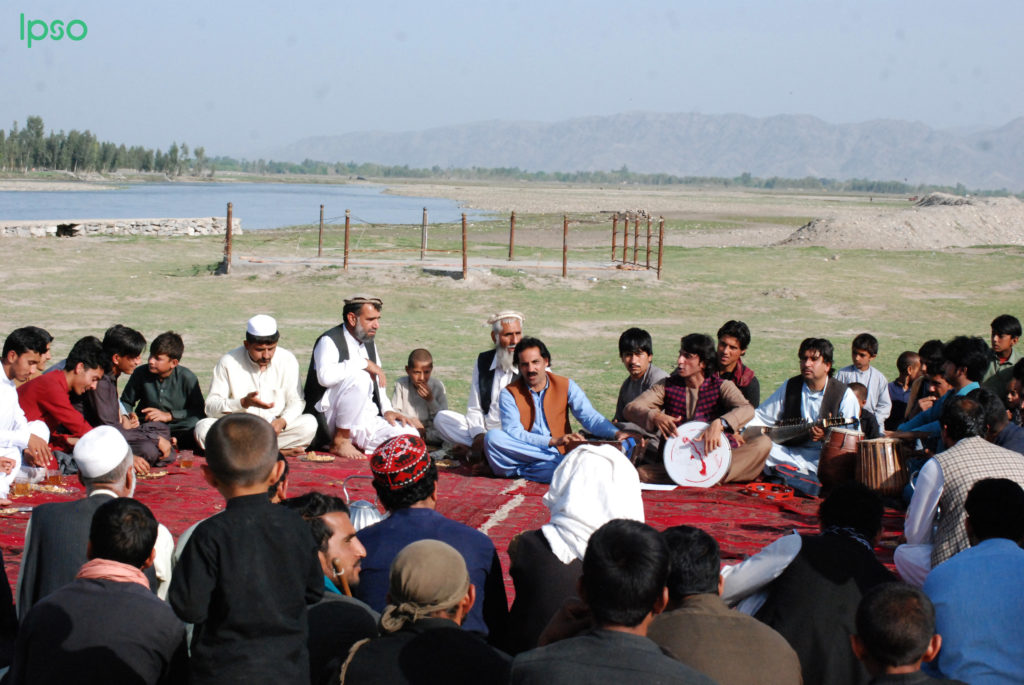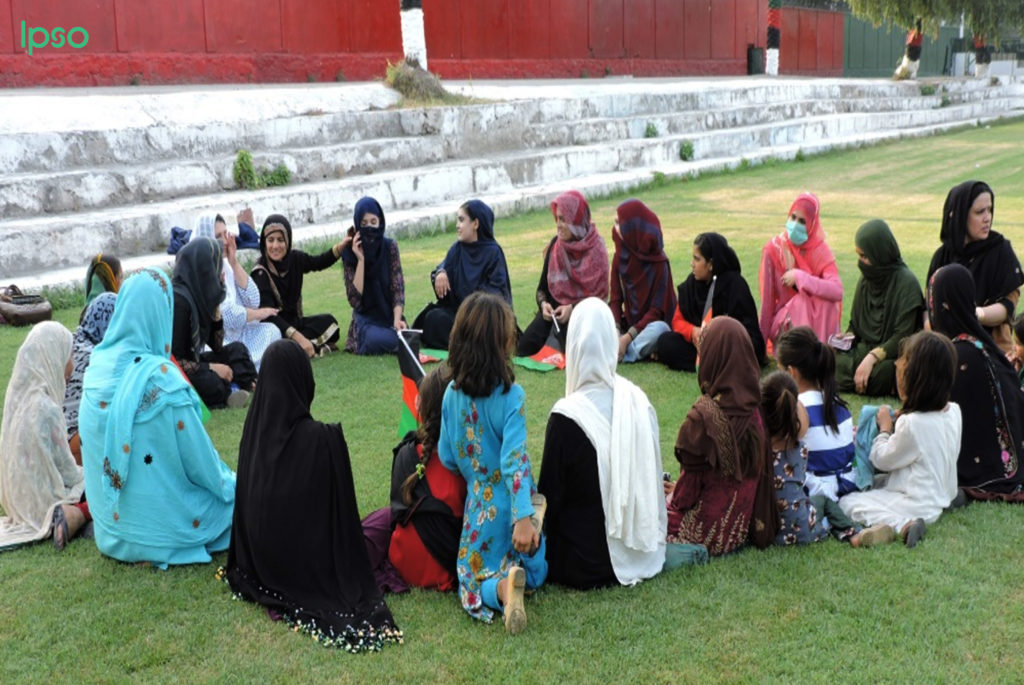To mark the start of the Persian new year and arrival of spring, people from different communities in Khewa and Kama districts, in the north and northeast of Nangarhar province, came together to get to know each other better and foster trust. They visited each other’s areas and planted saplings to enhance the natural environment.
Sayed Mahmood Shah from Khewa district explains: “Most families in Kama district settled there after being displaced from other provinces, so we in Khewa district barely knew them. But some of their representatives had the idea of holding gatherings together with us. As well as the planting saplings in Kama and some of us doing the same in Khewa, spending time together enabled us to learn about each other, our respective traditions, values and ways of life”.
A resident of Kama who is also a keen a volleyball player explains: “During these gatherings, I learned about the people of Khewa, including their traditional sports, and got to know fellow volleyball players. We agreed to schedule matches in the future and I hope that this will help us strengthen our social ties.”
The sheer diversity of Afghan communities in many cases results in them being insular, and avoiding social interaction. According to Faisal Arifzai from Kama district: “Before we sat down together, I could not see the need to get to know those outside our community but I learned a great deal about the people living in Khewa, their values and skills. I feel that this has made me a better person and better able to work together to find solutions to social or other challenges we may face..”
Gul Rabi from Khewa and Nabi from Kama agree: “The initiative taken by elders in our communities to develop better links will benefit all of us and foster a sense of shared responsibility that will hopefully last for future generations.”
Social relations play an important role in how communities address challenges. Shabana, a female volunteer who works with women in Kama and Khewa districts explains: “Anything done by this generation to strengthen social ties between the communities is a positive step. They will help the next generation to understand that the development of their communities relies on unity and equality and that this is the responsibility of everyone. Through my work, I try to get those people who consider themselves better than others in the community to acknowledge that we’re equal. When women from different districts come together and get to know each other, they see the value of social relationships.”
Gul Bibi from Khewa says: “The role of women in strengthening social and cultural ties is very important, as we represent half of our communities. As mothers, we have a key role in passing on social and cultural ties in our families.”















